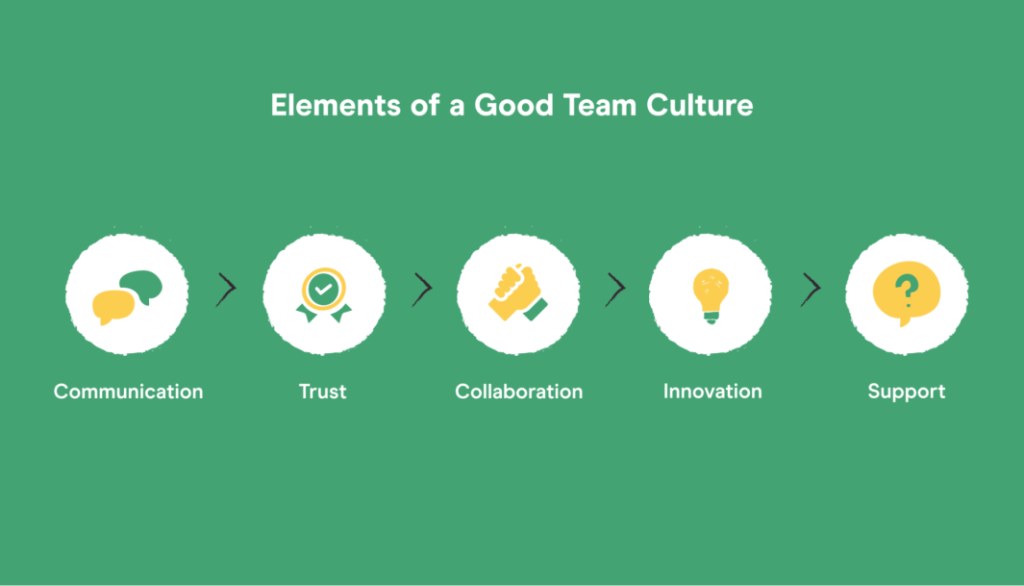How to Build a Successful Company Culture

Often, we think money administration is the most important aspect of a company’s success, but company culture can have an even greater impact. Company culture is the personality of a company, and it’s at the core of every company’s success. It’s the company’s values, beliefs, and behaviors that impact its employees. And, what can companies accomplish without staff? Not much, right?
A company’s culture is one of its most important assets. A strong, positive company culture can help attract and retain top talent, improve productivity, and boost morale. But how do you go about building a successful company culture? Is there a tutorial out there? Not really, that’s why we put together this blog post for you. Keep reading, we are guiding you to the leader’s guide to company culture!

Company Culture and Company Brand
Company culture and company brand are sometimes confused as the same, but they have distinct differences:
- Company culture is about what happens inside the company and how employees interact with one another. It also includes company values and how they are expressed in the company’s mission, vision, and strategy.

- According to the Branding Journal, a company brand gives meaning to a specific organization, company, product, or service by creating and shaping a brand in consumers’ minds. Branding is about how a company projects itself to the world. This includes company marketing efforts and communication of company values aimed at the general public. The company brand is an outward expression of company culture.

Therefore, company culture should be the foundation of a company’s brand. A company can have all the right marketing tactics and communication strategies in place, but if there isn’t an authentic company culture to back it up, then those strategies won’t be successful. Establishing a strong company culture will help ensure company brand consistency.
Let’s review a bit more why building a company culture is important for your organization!
Why is Company Culture Important?
A company with no established culture is like a pier without a lighthouse. What will guide the staff to the desired outcomes? Culture is key for company success as it sets the tone for how a company should function. s. Companies with good company cultures have higher employee retention rates, better communication and collaboration between employees, and greater overall employee satisfaction.
Company Culture Increase Employee Retention
Inevitably, company culture will be a deciding factor in whether an employee chooses to stay with the company or not. When people have positive experiences with company culture, they are more likely to stay and work hard for their company. This is because employees feel valued when their employer takes the time to invest in promoting good company culture.
The infographic below available in the LinkedIn Global Talent Trends 2022 shows how around the world employees consider company culture a top priority when picking a job.

Culture Affects Employee Engagement, Therefore Productivity
A company’s culture has a direct impact on employee engagement, and subsequently, productivity. If productivity is an issue in your company, it’s time to critically assess your company culture.
Is it encouraging employees to feel connected and enthusiastic about their work? Or is it causing them to become disengaged with the company? Engaged employees come to work committed; they have a passion for their job and strive to exceed expectations. An employee with low (or no) engagement faces little motivation and often only does just enough to keep their job and check the box.
Company Culture Creates Teams
Company culture is a powerful tool for transforming the people at your company into a cohesive and productive team. A company culture that prioritizes open communication, collaboration, and employee engagement leads to more productive results for each team member and the company as a whole.
An effective company culture values employees’ contributions, offers development opportunities and sets clear expectations, provides direction, and purpose, and supports meaningful conversations that encourage collaboration and team-building.

This in turn improves decision-making, workflow, and team cohesion while ensuring individuals are respected as they work together toward common goals.
Keep Your Top-Talent
A company culture that emphasizes collaboration, inclusion, and respect is invaluable when it comes to keeping your top talent. Highly-skilled performers gravitate towards campuses that foster relationships between coworkers, offer resources to help employees perform at their peak levels, and provide a positive working environment with career growth opportunities.
Having an organizational culture that encourages strong team dynamics helps create a sense of belonging within your company. Hiring specifically for cultural fit will ensure you have people who can enhance the unique experience already in place and keep your best people engaged.

Build a Company Culture That Employees Will Love: The Leader’s Guide
This leader’s guide to company culture is an essential resource for company leaders who want to create a company culture that will propel their company to greater success. Save it in your favorite tab!
Know Thyself
As Aristotle once said, “Knowing yourself is the beginning of all wisdom.” And, this especially applies when creating a company culture- to make it work, you need to know what kind of company culture you want or are striving for.
Every company should strive to define its mission and values to create an individualized company culture that all employees can get on board with. Taking the time to get to know yourself–and knowing how you want your company to run–is a crucial part of future success.
Lead by Example: Cascading Company Culture
After knowing the values and mission of your company, as a leader, you will need to be first to set the standards. Learn to cascade!
Leaders should be sure to “cascade” company culture throughout the company by embodying company values and continuously communicating company goals. This will help everyone stay on the same page and feel connected with company goals and objectives. Leaders should also ensure that company policies are flexible, fair, consistent, and applied with purpose.
Cascading your company culture starts with the leaders and then extends outward, inspiring employees to embrace company values!
Create a Sense of Community
A company is more than you as a leader. And even though not every company culture has the same tone, it’s recommended for the staff to become a team. Encourage employees to get to know each other and build relationships across departments, hold company-wide events like retreats or team-building activities, or even provide opportunities for employees to give back to their local communities.
These types of connections create belonging and help cultivate a strong company culture that will benefit everyone involved. A company is only successful when the company culture creates an engaged and loyal team – remembering this can create an atmosphere of success for any business.
Recognize and Reward Employees
Recognizing and rewarding employees goes a long way in developing a company culture that is positive and strong. It not only boosts employee morale but also helps to create an overall environment of respect, appreciation, and encouragement. Leaders who take the time to ensure their team feels recognized and rewarded often end up with a company culture that employees will love.

Rewarding employees for their hard work will reinforce company values and goals throughout the organization and motivate your staff to reach further heights. Regularly taking time to acknowledge both individual and group successes will lead to a more cohesive team, improve communication between team members, and enhance trust in the workplace.
Here, you can read our list of good, clever best appreciation gifts for employees.
Create Opportunities for Career Growth
Creating opportunities for career growth is an essential element of fostering a company culture that employees love. Leaders need to invest their time and resources into creating an environment for advancement. This could include increasing training, giving employees more autonomy, allowing workers to take on higher roles, or designing customized positions to fit their skill set.
Career investment increases employee retention, establishing a company culture of achievement and trust
LinkedIn’s 2018 Workplace Learning Report revealed that 94% of employees would stay with their companies longer if those businesses invested in their professional development.

Additionally, company leaders should recognize their employees’ achievements, listen to their ideas and give them feedback on the projects they are leading. Doing this creates a sense of purpose and allows the company culture to focus on individual employee success.
Celebrate Company Successes
Part of rewarding and recognizing employees is also about celebrating company successes together; this serves as a reminder of team focus, company objectives, and expert-level effort. Sharing these successes publicly through company-wide emails or events can help build morale, and camaraderie and boost company pride.
Leaders should look for every opportunity to remind employees that their work is important and that they are part of something special that everybody should be proud of. This type of company culture will not only attract more talented professionals but also grant current team members the resources they need to reach greater heights in their career growth.
Culture Fit Hiring
Hiring based on culture fit is not new, but not as mainstream as it should be. 67% of recruiters think hiring based on culture fit is crucial when hiring.

As a leader, it’s your responsibility to curate that company culture and ensure that each new hire joins the team for not only their skills but also for their cultural fit. Luckily, culture-fit hiring is an effective and simple way to create an atmosphere in which employees love being a part.
With this hiring practice, you can rest assured that the company culture you build from the ground up will stand the test of time and continue fostering employee engagement for years to come.
It is important, however, to be aware of any potential biases when implementing culture-fit hiring strategies. Using strict guidelines and processes helps to ensure fair, inclusive, and objective decision-making, stopping any implicit or explicit biases from taking hold of the company’s values.
Ask Employees for Input
As a leader, it is essential to ensure that you are actively engaging employees in building this company culture. One great way to do this is by asking employees for their input on how they want the company atmosphere and norms to be shaped. Not only will this create a more positive environment and increase morale, but it will also facilitate greater collaboration and cooperation among teams.
Taking the time to hold company-wide meetings or team meetings to discuss company culture and encourage employee input during these meetings can make all the difference in creating an environment that is both successful and enjoyable!
Matching Your Company Culture with Your Company Brand
At the beginning of our article, we talked about the differences between company culture and company brand. Yet, you need the two to leverage your company. A company’s culture and brand are inextricably linked, so it is important to make sure that the two play off each other in a way that is meaningful and effective.
Company culture should reflect its company ideals, values, and standards as well as be reflective of the company brand. For example, if a company’s brand is optimistic and lively, then the company culture should embody those same sentiments through:
- motivational practices
- fair policies
- engaging communication methodologies
- among many other initiatives
The more a company lives up to what its company attributes are holistically speaking from its brand image to company culture, the more attractive an organization it will be for both customers and employees alike.
Final Thoughts
Company culture is the foundation upon which success is built, but it takes more than just implementing these guidelines. Leaders must also strive to promote collaboration, innovation, creativity, respect, openness, and employee engagement throughout their company. This means providing resources such as job training and professional development programs, as well as investing in technology and software solutions that will help teams work together effectively.
Additionally, leaders should listen to feedback from employees and make sure they understand what motivates them so they can craft an environment where people thrive. Finally, company culture needs to be constantly monitored and managed to ensure it remains positive and productive in the long run.
Keep working towards the company of your dreams with our tips, and keep reading our posts!
-The Monitask Team


